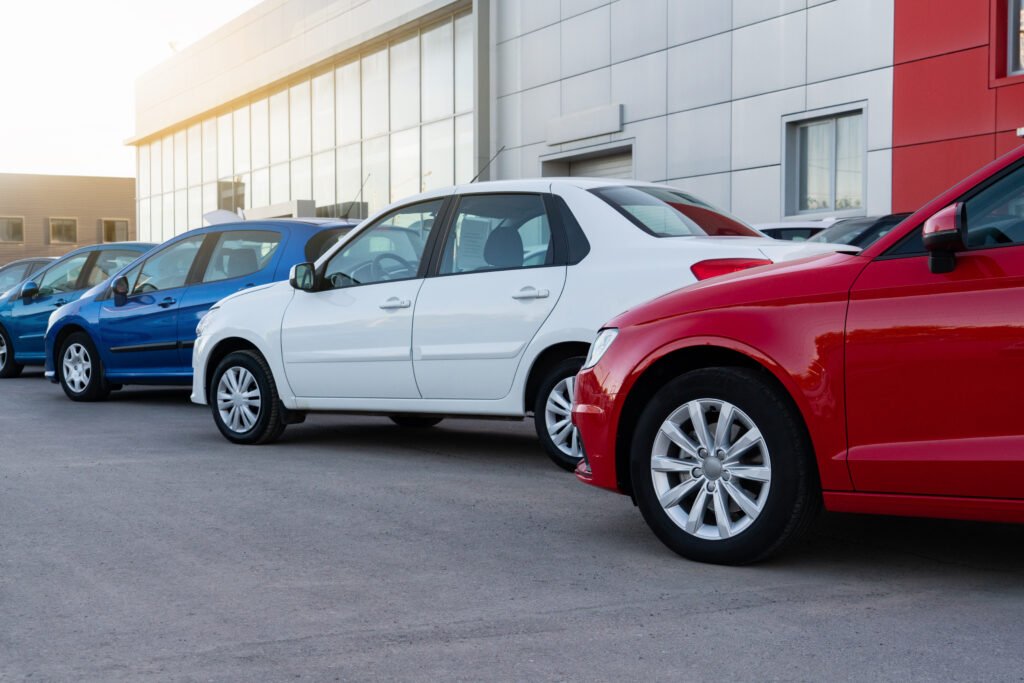7 Reasons You Should Never Buy a Brand New Car

Buying a brand new car is often perceived as a symbol of success, yet it can prove to be a financial misstep.
New cars quickly lose value once driven off the lot, leading to big financial losses.
They’re pricier upfront, meaning higher payments and insurance costs. Plus, unexpected repairs can add up quickly.
In this article, I will reveal the seven specific reasons why opting for a new car should be avoided.
1. Depreciation: The Instant Value Drop
Brand new cars are notorious for losing their value quickly.
This depreciation is a major financial hit for those who buy new cars.
It means that if you were to sell your brand-new car after just one year, you would likely get significantly less than what you paid for it.
This is because the car is no longer considered new and has already experienced wear and tear.
It’s important to note that not all cars depreciate at the same rate.
Luxury cars and sports cars, for example, tend to depreciate at a faster rate than more practical vehicles. The make and model of the car also affect its depreciation rate.
Used cars have already experienced their initial drop in value and may have a more stable resale value.
2. Insurance Costs: Higher Rates for New Cars
When it comes to insuring a new car, owners expect to pay higher rates compared to those with older vehicles.
This is due to several factors that make new cars more expensive to insure.
Insurance companies take into account the cost of parts and labor when determining rates, and newer cars often have more advanced technology and features that will drive up repair costs.
Also, new cars are more attractive targets for theft, which will also increase insurance rates.
Finally, new cars may be more expensive to insure simply because they are new.
Insurance companies often consider newer cars to be more of a risk due to their lack of driving history and unknown reliability.
3. Interest Rates: The Hidden Expense
When considering purchasing a brand new car, many people focus solely on the sticker price without taking into account the interest rates that come with financing the vehicle.
Interest rates add thousands of dollars to the total cost of the car, making it an expensive investment.
It’s important to shop around for the best interest rates before committing to a car loan.
Different lenders offer varying rates, and a lower interest rate will save a significant amount of money in the long run. Online comparison tools will be helpful in finding the best rates available.
Another factor to consider is the length of the loan term. Longer loan terms result in lower monthly payments, but they also mean paying more in interest over time.
Shorter loan terms may have higher monthly payments, but they can save money in the long run by reducing the amount of interest paid.
When financing a new car, it’s important to read the fine print and understand all the terms and conditions of the loan agreement.
Some loans may have hidden fees or penalties for early repayment, which will add to the overall cost of the car.
4. Technology and Features: Rapid Obsolescence

One of the main reasons why buying a brand new car is not a wise decision is the rapid obsolescence of technology and features.
The automotive industry is constantly evolving, and new technologies and features are introduced every year.
As a result, the car you buy today may be outdated in just a few years.
This means that the car’s resale value will decrease, and you may have to spend more money to upgrade the system.
This is especially important to consider if you plan on keeping the car for many years.
The rapid obsolescence of technology and features is a major reason why buying a brand new car may not be the best financial decision.
It is important to consider the long-term value of the car and whether the features and technology it offers will still be relevant in the future.
5. Opportunity Costs: Investing Your Money Wisely

Buying a brand new car may seem like a good idea, but it’s important to consider the opportunity costs of investing your money wisely.
Opportunity cost is the cost of forgoing an alternative option in order to pursue a certain action. In this case, the alternative option is investing your money in a more lucrative way.
By investing in stocks, bonds, or real estate, you can potentially earn a higher return on your investment than you would by purchasing a brand new car.
Over time, the compounding effect of earning interest on your investments can lead to a significant increase in your overall wealth.
Also, avoiding the high depreciation that occurs in a new car’s first few years will save you money in the long run.
According to lendingtree.com, a new car will lose up to 20% of its value in the first year alone. By purchasing a used car or leasing a car, you can avoid this steep depreciation and potentially save thousands of dollars.
6. Environmental Impact: The Cost of Manufacturing New
Buying a brand new car may seem like a great idea, but it comes with a high environmental cost.
Manufacturing a new car requires a significant amount of energy and resources, which will have a negative impact on the environment. Here are some of the ways that manufacturing a new car can harm the environment:
- Energy Consumption: Manufacturing a new car requires a lot of energy, which is often generated from non-renewable sources such as coal and natural gas. This contributes to greenhouse gas emissions and climate change.
- Resource Depletion: The production of a new car requires a variety of resources, including steel, aluminum, and plastic. These resources are finite and their extraction and production can have a negative impact on the environment.
- Chemical Pollution: The manufacturing process of a new car involves the use of chemicals such as solvents, paints, and adhesives. These chemicals can be harmful to the environment and human health if not disposed of properly.
- Water Consumption: Manufacturing a new car requires a significant amount of water, which can put a strain on local water resources.
It’s important to consider the environmental cost of a new car before making a purchase decision.
7. The Used Car Market: Abundance of Choices

When it comes to buying a car, the used car market is a treasure trove of options.
Unlike the limited choices available in the new car market, the used car market offers a wide selection of models, makes, and years to choose from.
This abundance of choices allows buyers to find the car that best suits their needs and budget.
One advantage of buying a used car is the ability to research and compare different models and prices.
With the wealth of information available online, buyers easily compare prices, features, and reviews of different models before making a purchase.
This allows them to make an informed decision and get the most value for their money.
Another benefit of the used car market is the availability of certified pre-owned vehicles.
These cars are inspected and refurbished by the manufacturer, ensuring that they meet high standards of quality and reliability.
Certified pre-owned cars often come with extended warranties, providing buyers with added peace of mind.
Bottom line
The abundance of choices available in the used car market makes it a great option for buyers looking for a reliable car at an affordable price.
With careful research and consideration, buyers can find a car that meets their needs and budget without breaking the bank.
